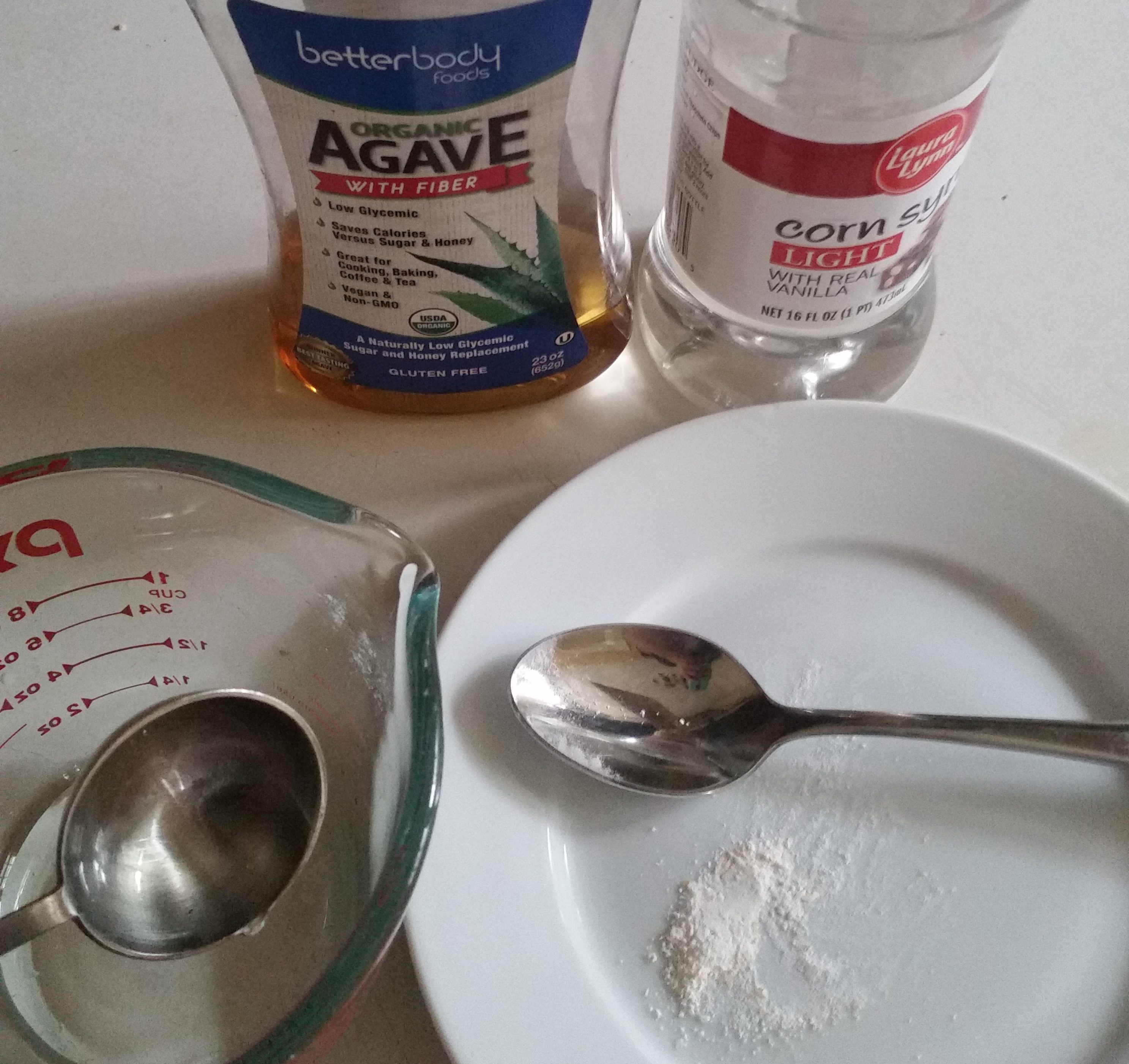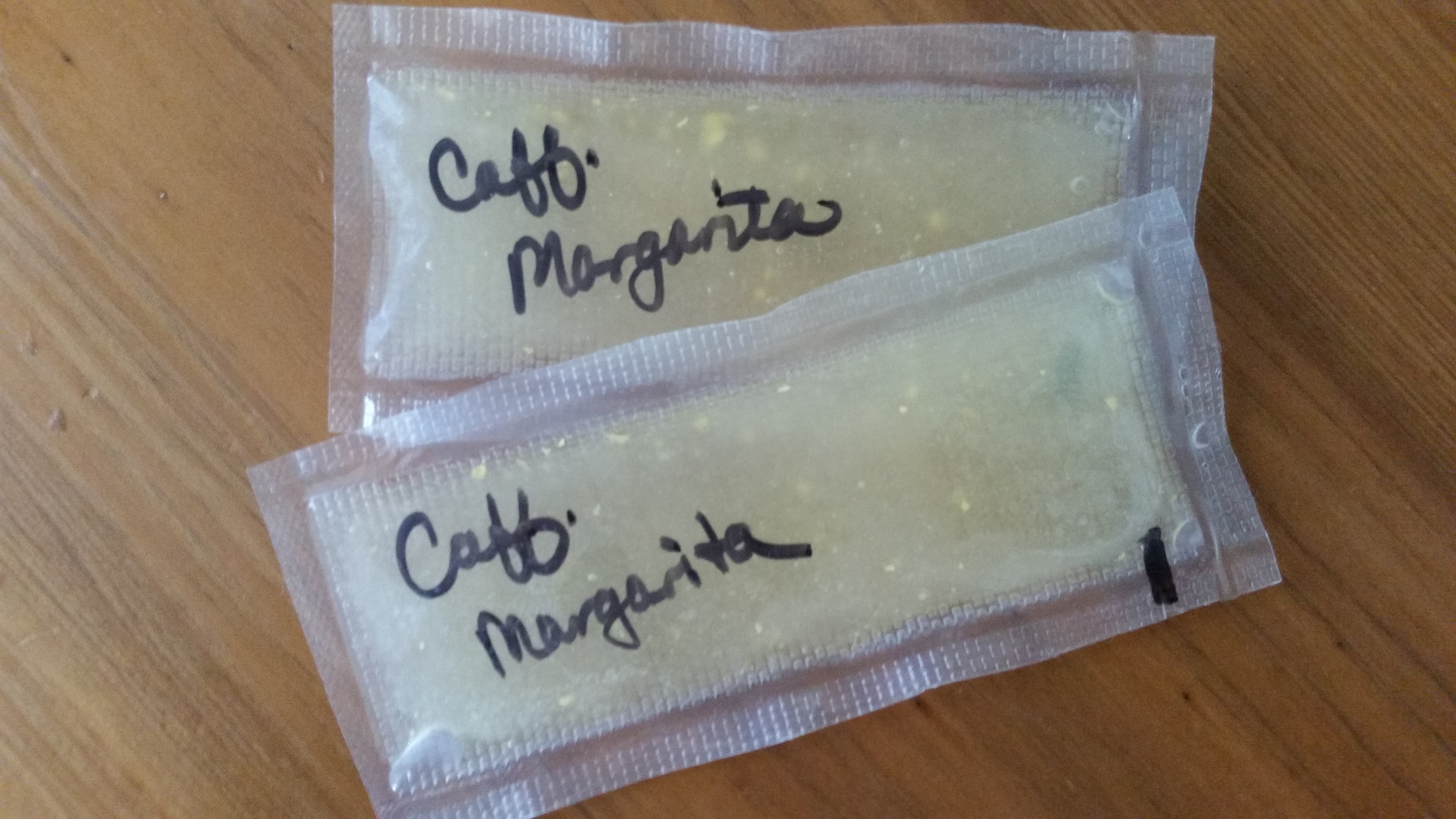Now that I’m back into marathon training, it’s time to start looking at fueling again. I love making my own gels because they are cheap, easy, and fun to make, and I’m always trying to research what’s been proven to work best and see if I need to make any changes.
In hard racing below the ultra distance, carbs are king, but the type and ratios of carbohydrate are important. Some people I know swear by UCAN, a powder that you mix with water that is marketed as a “Super Starch.” (I’m imagining a potato flying around with a little potato cape.) The idea is that starch does not spike blood sugar and therefore insulin like sugar does, so in theory, it gives you sustained energy without crashes. But at over $2 a serving for only 80 calories, the only thing super about UCAN is its marketing. Bodybuilders have been eating the cornstarch-like waxy maize for years which appears to be about the same thing. Even modified food starch thickeners for fruit pies like Clear Jel might be a cheaper option. I’m tempted to experiment with with some alternatives.
As I was reading more about starch and carbohydrates, I found an incredibly detailed website by a Charlotte-based runner called fellrnr.com. The author, Jonathan Savage, has put together scientifically-backed site that is really helpful in figuring out what to eat when and what the science says. Some of it is so scientific that is goes beyond what a normal human really should eat in a day (multiple whey shakes a day, for example), but I respect his thoroughness and citations of studies. If you are at all interested in the nerdy details, I recommend you head over there and let me know what you think.
In my 16-mile easy long run yesterday, I only brought one of my lemon gels with me and I took it at mile 8. I didn’t feel hungry or low on energy at that point since I was going slow, but I took it just to practice eating gels again. Afterwards, I asked my coach about it and she recommended that I take one every 45 minutes or 5 miles, whichever comes faster. Typically, I don’t take anything under 10-12 miles, but it’s time to get back into the habit.
Which means back to the kitchen.

My gels contain a 2:1 ratio of glucose to fructose, which is the best way to absorb more carbohydrate for energy during racing. But I haven’t experimented adding caffeine yet, so here goes. Savage cites evidence that caffeine from coffee might not be absorbed very well to be helpful for running, so I decided to make a lime gel with a crushed caffeine pill instead. With the addition of salt for sodium, it’s like a margarita in your pocket! (I’ll save the real margarita for after the race.)
One issue that glucose and fructose have is that they need to be diluted with quite a lot water to make them about the same concentration as your blood in order for them to used properly by the body. Maltodextrin, on the other hand, requires about 6 times less water to become isotonic (fancy word for diluted enough to be like your blood), which is why most commercial gels rely on the corn-based product for carbohydrate. This is a real advantage during a race, especially a cooler one where you are not drinking as much water. I’m still not quite convinced to try it since it seems even more removed from a whole food than corn syrup, but we’ll see. It’s fairly cheap to buy maltodexdrin in bulk, so I might do that in the future.
So for now, I’ll stick with what works. I know it might seem a bit strange to have cocktail-flavored gels on a run (or maybe that’s just my repressed inner alcoholic), but I really like them.
Pass the chips and salsa!
Margarita Endurance Gel with Caffeine
Ingredients
- 2 tablespoons pure corn syrup choose a brand without high fructose corn syrup
- 1 tablespoon agave
- 1/8 teaspoon salt
- 2 teaspoons lime juice
- half of a 200mg caffeine pill I used Vivarin, but any brand will do, crushed into powder
Instructions
- Mix all ingredients well and split into 2 gel packs (I make my own with a Food Saver) or pour into a gel flask.
Notes

